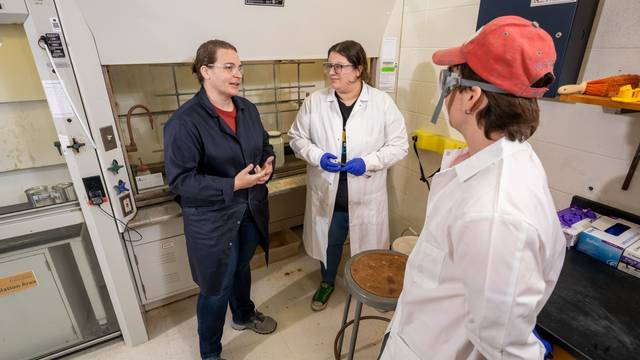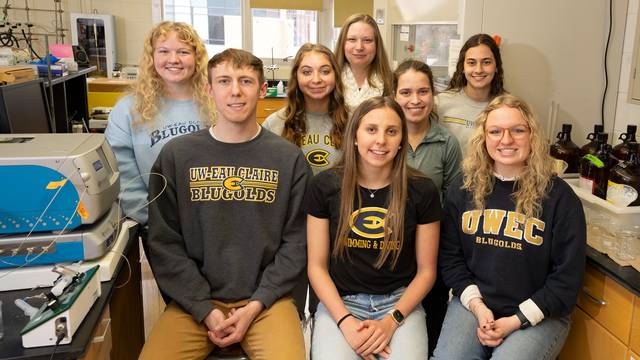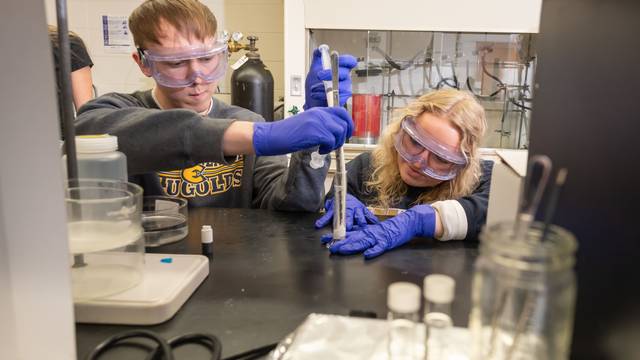Academic research opens up the doors to an array of valuable opportunities and experiences. For most, projects are grounded in a passion or specific interest. For others, projects involve wholly new and eye-opening experiences, leading to newfound passions and pathways in life.
Three UWEC students share their research, describing the inspiration, diverse experiences, and growth they have found through their projects.
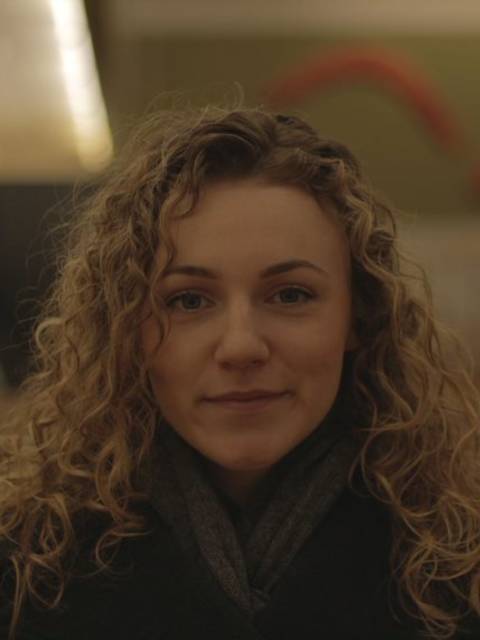
Hannah Bryson, Critical Studies and Business Administration double major
Sophomore English - Critical Studies and Business Administration double major Hannah Bryson explains how her project, conducted through the Blugold Fellow program, fell into place after learning about microloans.
The project, titled “Women and Microloans in Nicaragua: Changes in Standard of Living,” investigates the microfinance communities in Matagalpa, Nicaragua. Through oral testimonies and outside research, Hannah, in collaboration with Dr. José Alvergue and Dr. Jeff and Analisa DeGrave, is looking at the economic and social effects of microloans on women in these communities. Hannah has traveled to Guatemala to meet women who had received microloans, as she was unable to travel to Nicaragua due to civil unrest in April of last year. The faculty of Colibri Spanish School in Nicaragua was able to conduct interviews for her in her stead, and she is currently working on analyzing these transcripts to present at the National Conference for Undergraduate Research (NUCR) in April.
“The overall value of this research,” Hannah explains, “is that it analyzes a factor of what is currently shaping the social empowerment movement for women in
Nicaragua and how transnational or local microlending can cause cultural and economic changes.”
Regarding the personal value she has found through the project, Hannah explains that the project reaches every part of her day-to-day, particularly in her classes. “It has brought me to contribute my first hand experiences and knowledge to conversations within my critical studies courses,” she elaborates. “It is a pleasure to be able to share with my classmates the perspectives this research has shaped for me.”
Additionally, the project has helped lay the pathway for her future. Inspired by investigating NGOs and other government work through her research, Hannah hopes to get her Master’s in Public Administration, with the end goal of working for the government or an NGO. For the more immediate future, however, she has applied to an internship that involves researching and looking at the successes and shortcomings of government projects in Milwaukee.
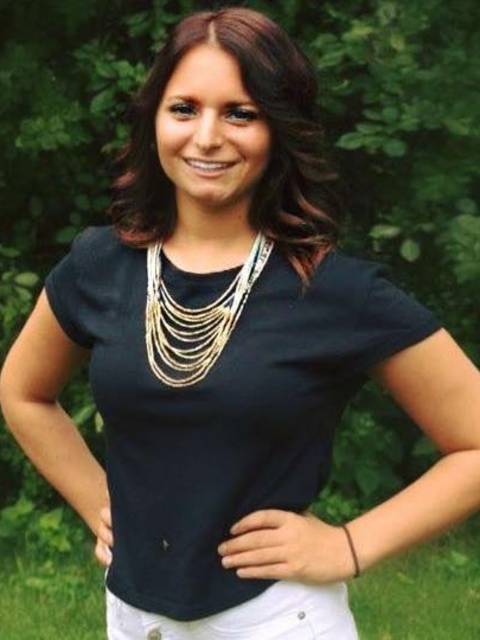
Andrea Magliocco, Grad student - Literature and Textual Interpretation
Andrea Magliocco (B.A. English 2016) is currently getting her Master’s in Literature and Textual Interpretation, with interest specifically in the critical theory of Marxism and Race Studies.
In fact, it is this interest in Marxism and Race Studies that got her started on her current thesis project, in which she is analyzing the commodification of race in African American author George Schuyler’s Black No More. In this Harlem Renaissance text, an African American scientist invents a machine that transforms blacks into whites, and as the country’s white population increases, the economic importance of segregation in the South, as a means of maintaining elite white status, becomes increasingly apparent.
“Schuyler makes the commodification of race so overt and satirical that it becomes grotesque for the reader, ultimately generating a sense of empathy,” Andrea explains. “It is this empathy that one hopes becomes a call to action to acknowledge discrepancies in society, in regards to race.”
One discovery that struck Andrea during her research is the persisting relevance of the social issues in Black No More. “With contentious political debates about race in our daily news, it is clear that a social, political, and economic change must occur,” she explains. “[R]acial divides have been the foundation of this nation and are still so inherently connected to the roots of this nation that we, sadly, still see the same problems occurring.”
Andrea notes the growth she has experienced as a writer and academic throughout writing her thesis. Rather than relying on previous scholars as she would for a seminar paper, she explains, she must show that she is able to take the reins on her own and contribute to the academic conversation currently surrounding her material. “Relying on my thesis advisor and recent alumni has greatly helped me make this transition” she says.
Andrea says this project will be the basis of her academic research in the coming years. She is currently applying to English/composition lecturer positions at community colleges and four-year universities.

Zachary Peterson, Grad Student- English Writing
Zachary Peterson majored in History at Ripon College in Ripon, WI, and is currently getting his Master’s in English Writing, with a research focus in rhetoric and composition.
Zachary’s fascination with history greatly inspired his current research on institutional mental health in the U.S., and particularly in the latter half of the Asylum Era (1850-1950). He is investigating what was originally known as the Northern Wisconsin Home for the Feeble Minded and the Epileptic, founded in 1897.
He merges Queer Theory, Actor Network Theory (ANT), and Disability Studies as a methodological lens to analyze how a prevailing “happiness script” of the center operates through twenty-four oral histories. Building from ANT, he also focuses on the brick and mortar of the structures themselves to get at the individual stories of those within the system. All of this, he explains, is done to show how rhetorics of mental health can be creatively reshaped through greater attention to physical architectural manifestations of the Asylum Era.
Zachary further notes how he has always been particularly interested in the objects and buildings the past leaves behind, and how they can be used to help create better historical interpretations. However, it was not only a fascination with history that inspired this project; Zachary is also passionate about advocacy and education for mental health. “We are never going to be able to have honest conversation about tackling the issues we are having with mental health today if we don’t discuss and come terms with its past,” he says. By making others aware of the collective institutional mental health history, Zachary hopes to move society in a more honest, conversational direction of talking about mental health.
Zachary hopes to continue his work in his Ph.D. program in East Carolina University in Greenville, North Carolina, where he will study Rhetoric, Writing and Professional Communication in Fall 2019.

